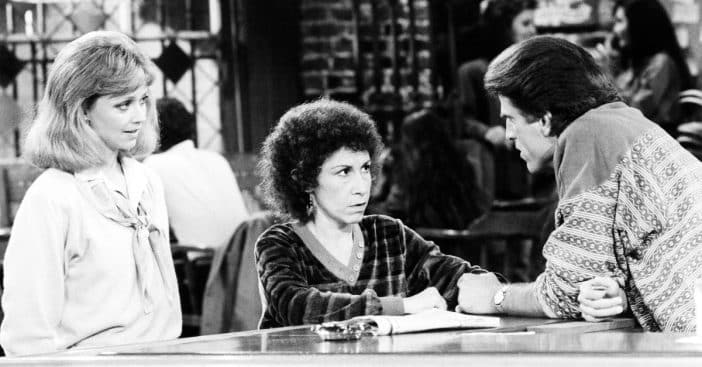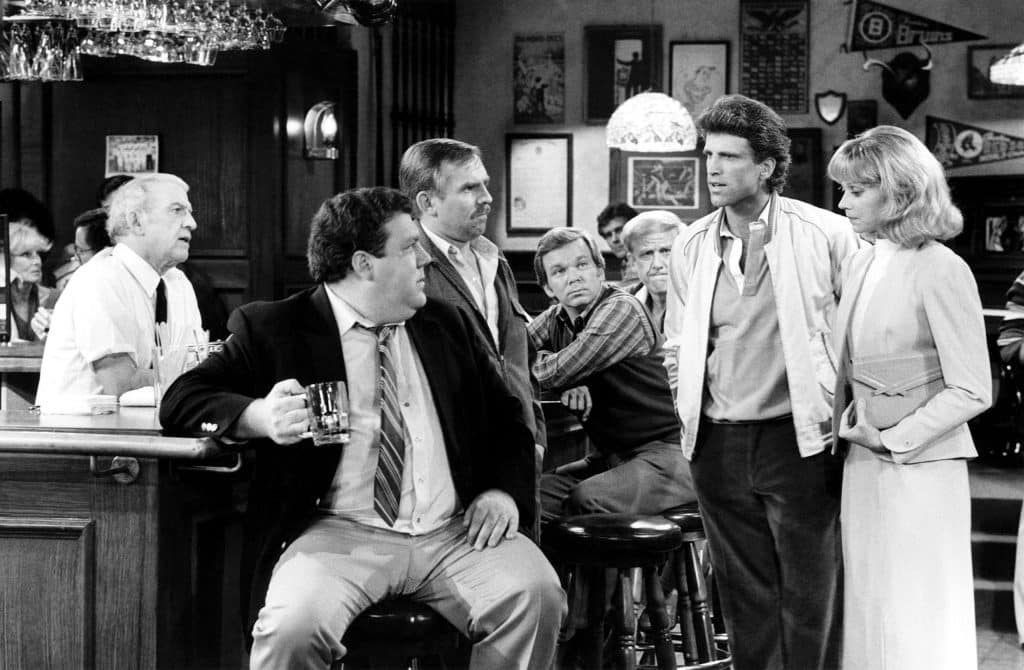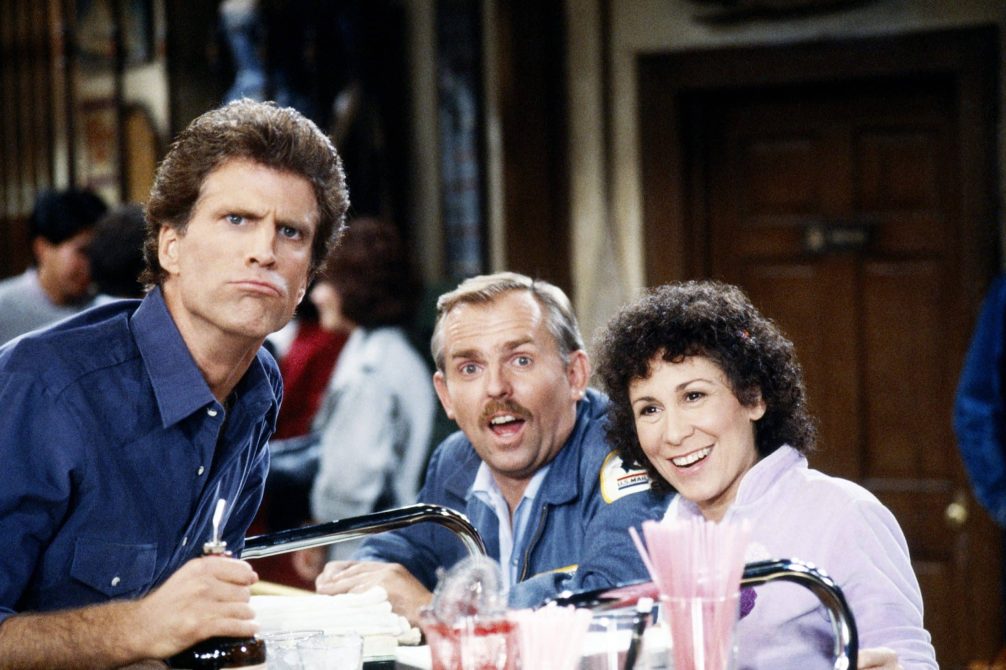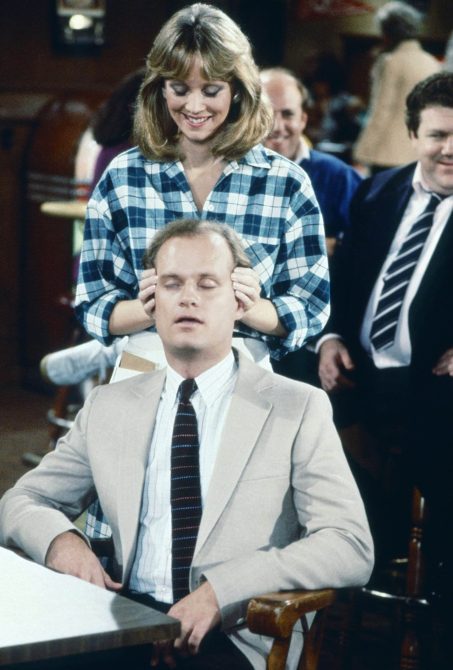
The beloved television series, Cheers, which ran for 11 years on NBC from 1982 to 1993, remains one of the most-loved in the previous era of television. Although the show aired its final episode 29 years ago, for most comedy lovers, it is regarded as one of the best sitcoms ever produced, standing side-by-side with other classics such as Seinfeld and Friends.
One of the features that made Cheers quite popular was the theme song, which had a very relatable chorus, “Where everybody knows your name.” Ken Levine, one of the writers of the show, disclosed on his Hollywood & Levine podcast that NBC had a challenge with both the theme song and the accompanying opening titles.
NBC wanted the cast pictures shown at the start of each episode

At the start of the show, the producers only gave a list of the cast names without showing their images when the theme song played to signal the beginning of each episode. Levine revealed that initially, the network was fine with that approach.
“Main titles were done by Castle Bryant [Johnsen] and were pretty remarkable,” he said on the podcast. “NBC originally loved the opening titles and then the show floundered in the ratings. When the show premiered, Brandon Tartikoff, who was the president of the network, came to all of us sitting in the writers room and said, ‘Look, you guys are doing great work. Don’t change anything. If the show doesn’t do well early on, we still believe in it. Don’t change anything. You’re doing a fantastic job.’”
RELATED: ‘Cheers’ Added A Disclaimer After Viewers At Home Complained About One Thing
The screenwriter further explained that Tartikoff did suggest one change, even though the creators of the show were opposed to the alteration. “What he wanted was more of the standard type titles where you saw the actors and maybe a clip of them doing something zany, those awful cliche opening titles, because they were saying, “Well, the names are up there, but you don’t know who’s who.” We figured, well, “Yeah, but there’s classy,” Levine said. “And the song and the whole mood — it’s telling a story. It’s setting the tone for the show. It’s not just about seeing George Wendt have a cross-eyed expression. They wanted that changed and, of course, it wasn’t.”
NBC did not want Gary Portnoy and Judy Hart Angelo to sing the theme song

Levine detailed that Gary Portnoy and co-writer Judy Hart Angelo were handed the difficult task of giving the network’s top men what should be the Cheers theme song. After writing several songs which were rejected by the show’s creators, brothers, Glen and Les Charles, Gary and Judy were able to get it right with “Where Everybody Knows Your Name.”
“The theme that you hear was not the very first attempt at a Cheers opening title theme by the composers Gary Portnoy and Judy Hart Angelo,” he stated. “They had another couple of songs. The Charles Brothers didn’t really take to them. Then they came up with this and everyone said, ‘Oh, okay, that sounds pretty good.’”
Gary Portnoy made an amazing deal with the song, “Where Everybody Knows Your Name”

He further revealed that Gary took his chance at fame by requesting to sing the song after the crew had agreed on it as the best one. “Once he knew that the Charles Brothers and Jim Burrows really liked the theme, he said. ‘I’ll only give it to you if you let me sing the opening title sequence,’” Levine said. “Now, he had sung the demo and we all liked the demo, so they said okay. And he went off, he recorded it at a studio in Paramount. I remember we were unable to go and watch the recording session, because we had a script that was due to go to the table or something like that. So none of us were actually there to witness the performance of the famous song.” The deal became a game-changer for Gary.
Gary, while speaking in a 2019 interview, revealed that his insistence on voicing the song was the best thing that happened to him. “The way it works is, I’m really blessed because I receive songwriting royalties,” he revealed. “Any time the song is played on TV or the radio or Netflix, whatever medium it’s played in. The songwriter, not just for a TV show but any medium, gets a royalty, and also as the singer, I get a performance royalty as well.”
